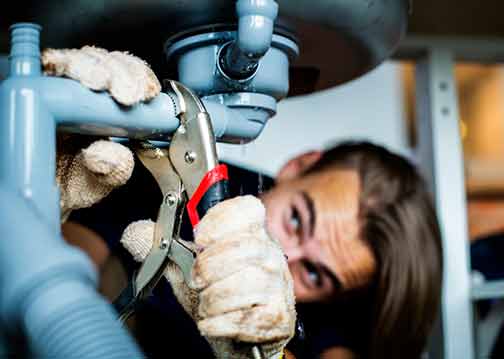
Picture yourself amidst a home crisis, arguably one of the most unpleasant, a sewage backup. Not the most delightful image, is it? This scenario underscores the absolute importance of understanding the root causes of this issue, the appropriate responses to take, and the preventive measures that could avert this situation.
Sewage backups can be confusing, alarming, and incredibly messy. However, they can be managed with the right knowledge and professional help. By comprehending the intricacies, you’ll be better prepared to tackle and prevent such emergencies from recurring.
Unraveling the Mystique of Sewage Backup
To battle a foe, one must first understand it. A sewage backup is when wastewater, which is supposed to flow out of your house, reverses its direction due to certain blockages. The nightmare of sewage accumulating in your property becomes a reality that no homeowner wishes to confront.
This reverse flow can be caused by various factors, including clogged pipes, tree root infiltration, or municipal sewer issues. The sooner you can identify the cause, the quicker you can address it.
It’s crucial to spot the common indicators of a sewage backup. The frequent appearance of drain blockages, several plumbing fixtures backing up simultaneously, or unpleasant odors wafting around the house can all be strong hints of a looming issue. Being alert to these signs can save you from a much bigger problem.
Why Your Concern About Sewage Backup Matters
It’s not just about the mess and inconvenience; sewage backups carry serious implications. One of the most alarming aspects is the potential health risks. Exposure to raw sewage can lead to various diseases, including Hepatitis A, Tetanus, and even parasites. Your health and your loved ones’ well-being could be on the line.
Alongside these health concerns, the potential property damage caused by a sewage backup is significant. Sewage doesn’t discriminate; it can ruin your valuable furnishings, compromise the structural integrity of your building, and create an unhealthy living environment.
Finally, the environmental impact must not be overlooked. When not contained or handled properly, sewage backups can contribute to water pollution, contaminating local water bodies and wreaking havoc on the broader ecosystem.
Navigating the Chaos: Immediate Steps in the Face of Sewage Backup
When facing a sewage backup, personal safety is paramount. Ensure everyone evacuates the affected area immediately. If you need to enter the affected area, wearing protective gear – gloves, boots, and masks – is essential.
The second step is containment. Close all doors to the contaminated area to prevent the spread of pathogens and foul odors. Block any paths the sewage might use to spread further, such as floor drains, if feasible.
Calling in the professionals should be your next course of action. This task requires professional skills, tools, and safety measures when managing plumbing emergencies. This isn’t a DIY situation.
The Relevance of Sewage Backup When Moving
Sewage backup knowledge isn’t just for your current residence; it’s also vital when moving to a new property. That’s why our friends at Zippy Shell Northern Virginia recommend you ensure the new place you’re planning to call home has a sound and well-maintained sewage system.
You can avoid nasty surprises by including a professional plumbing inspection in your moving checklist. Knowing that the property is free from potential sewage backup issues can provide peace of mind and a healthier living environment.
The Magic of Professional Cleaning
Once the professionals arrive, they take control of the situation. Their first step typically involves pumping out excess sewage out of the basement, followed by a thorough manual cleaning process.
They don’t stop there. Disinfecting and drying the area is vital to preventing mold growth and eliminating pathogens. This meticulous process aims to restore your property to a safe and livable condition.
Lastly, these professionals handle waste disposal in a legally compliant and environmentally friendly way. This step is crucial to minimize environmental impact and keep your local community safe.
Looking Ahead: Minimizing Future Sewage Backups
The adage ‘prevention is better than cure’ couldn’t be more accurate regarding sewage backups. Regular plumbing checks and maintenance are your first defense against future issues. Plumbers performing sewer camera inspections can help identify potential issues before they escalate.
Issues like a broken water line can initially seem minor but can lead to substantial problems if ignored. Early detection and repair can save you from a future crisis.
In addition, installing a backwater prevention valve can provide an extra layer of protection. This valve is designed to let sewage out, but not back in, effectively guarding against backups.
The importance of maintaining old plumbing also cannot be overstated. Old, worn-out pipes and fixtures can be ticking time bombs. Regular replacements and upgrades can keep your plumbing system in top shape and prevent backups.
Playing the Insurance Game with Sewage Backup
It’s vital to review your homeowner’s insurance coverage thoroughly. Standard policies often don’t cover sewage backups, necessitating additional riders or endorsements. Discovering this after the fact can be surprising and disappointing, so it’s best to be proactive.
Considering coverage specifically for sewage backups can be a smart move. This coverage could mean the difference between paying for a hefty repair bill out of pocket and just needing to cover a relatively minor deductible payment.
Conclusion
As our exploration concludes, it’s clear that dealing with a sewage backup is no easy task. It demands understanding, immediate action, and proactive measures. Despite the unpleasantness of the topic, it deserves our attention.
With awareness of the health risks, the knowledge to respond effectively, and the tools to prevent future occurrences, we can protect our homes and those who inhabit them. The fight against sewage backups is ongoing, but with the right strategies and help, we can certainly win.

